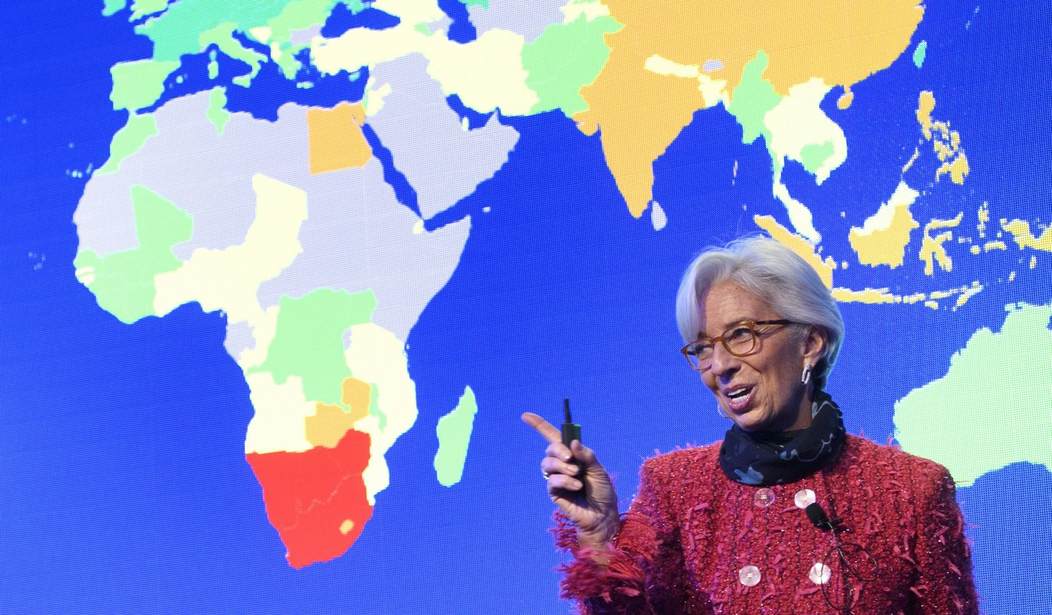“The individual has always had to struggle to keep from being overwhelmed by the tribe. To be your own man is a hard business. If you try it, you’ll be lonely often, and sometimes frightened. But no price is too high to pay for the privilege of owning yourself.”
-Rudyard Kipling
The self-styled progressive left, under pressure, will often nominally claim to support the First Amendment — and the concept of freedom of speech more broadly — in the most generic, banal, vague terms to appease critics who accuse them (correctly) of being aspirational fascists.
But, if left to their own devices, placed in front of cameras speaking to a receptive audience, allowed to veer off script, on a long enough timeline their true views on such matters inevitably slip out.
Related: NPR CEO Katherine Maher Is a Censor-Happy Parody of Wokeness
Such was the case with Katherine Maher, speaking to the Atlantic Council in 2021 on the topic of combatting “disinformation and misinformation” (emphasis added):
We took a very active approach to disinformation and misinformation, coming into not just the last election, but how we supported our editing community in an unprecedented moment where we were not only dealing with a global pandemic but a novel virus, which by definition means we know nothing about in real-time. And we're trying to figure it out as the pandemic went along.
We really set up, in response to the pandemic but also the upcoming U.S. election as a model for future elections outside of the U.S., including as number happening this year.
The model was around how do we create a clearinghouse of information that brings the institution of the Wikimedia Foundation with the editing community in order to be able to identify threats early on, through conversations with government, of course, as well as other platform operators to understand what the landscape looks like…The number one challenge here that we — we see is of course, the First Amendment in the United States is a fairly robust protection of rights and -- and that is a protection of rights both for platforms, which I actually think is very important, that platforms have those rights to be able to regulate what kind of content they want on their sites, but it also means that it is a little bit tricky to really address some of the real challenges of where does bad information come from, and sort of the influence peddlers who have made a real market economy around it.
(As many before have noted, and the video above perfectly encapsulates, the totalitarians of tomorrow won’t be goosestepping in fashionable polished boots; they’ll be intersectional feminists speaking the soft-spoken language of Social Justice™, luring well-meaning rubes into the fold, like the wolf in the disguise of the kindly grandmother in “Three Little Pigs.”)
What Maher’s saying above, stripped of all the corporate jibber-jabber, is that her sincere and abiding interest in free speech is confined to captured institutions, whereas the problem she is interested in combatting is the free speech granted to unsanctioned individuals.
Harrison Smith recently described on one of his shows this leftist preference for speech rights granted exclusively to institutions as “truth by committee.” What the term means and implies is that a media institution can in most instances be properly constrained by various influences: the government (for instance, via threats to revoke Section 230 for refusal to censor on demand), a board of directors that can be enticed with promises of lucrative positions elsewhere or outright bribes, accountability to shareholders, advertiser pressures, the psychological phenomenon of groupthink, etc.
An individual, on the other hand, can “go rogue.” The individual is less predictable and more volatile than the institution in terms of what information he is willing to disseminate; the individual can shift his ideological views independently as new information presents itself; the individual is a feeling being with (usually) a moral compass, who can make moral calculations and act on them; the incentive structure around an individual is harder to technocratically manage top-down than it is for an institution.
For all of these reasons and more, in the eyes of WEF acolytes like Katherine Maher, the institution is to be trusted with speech rights while the individual is to be distrusted and therefore censored as standard operating procedure.










